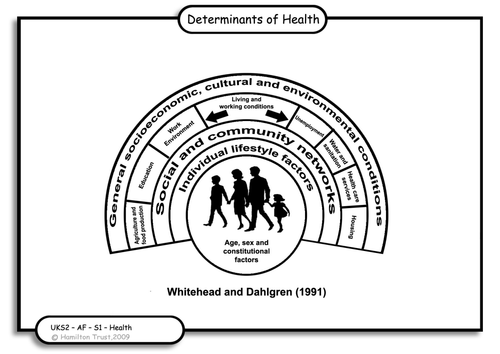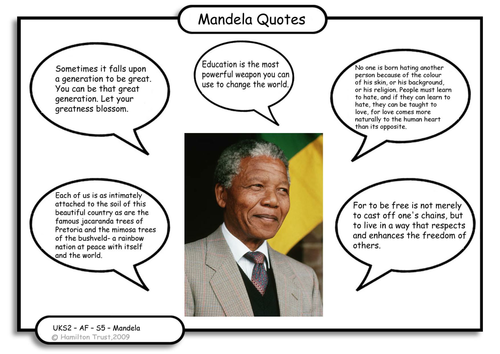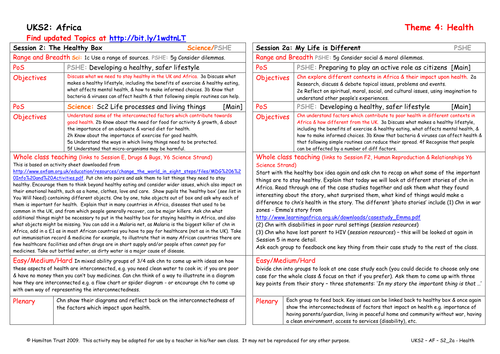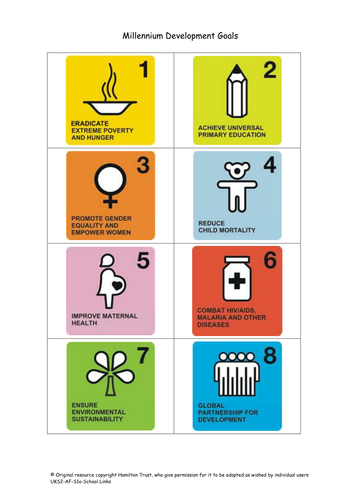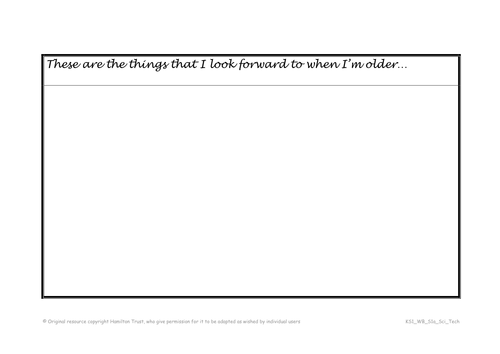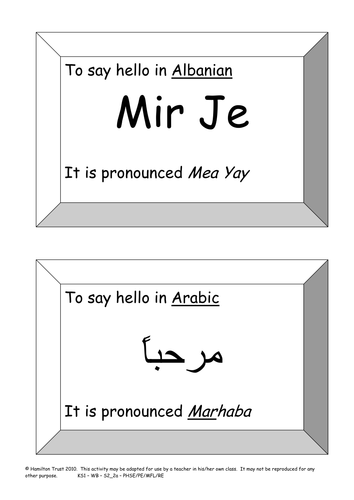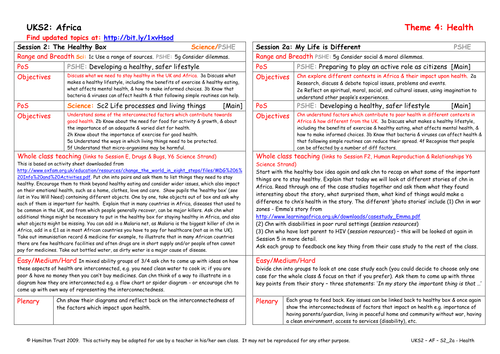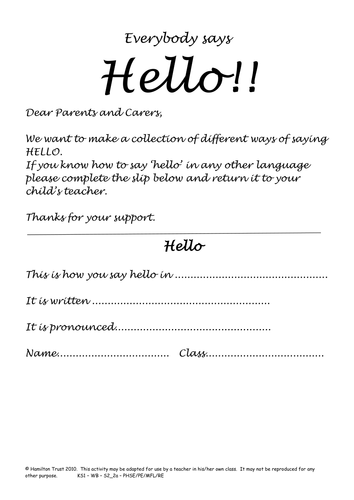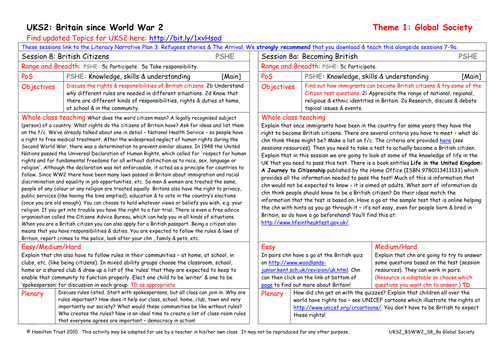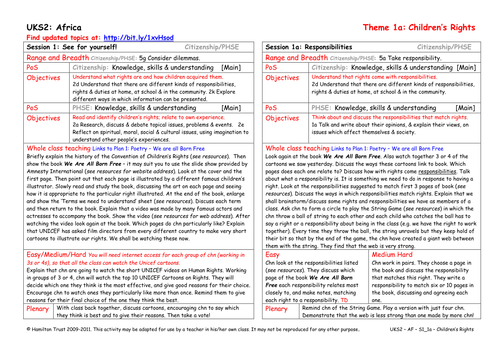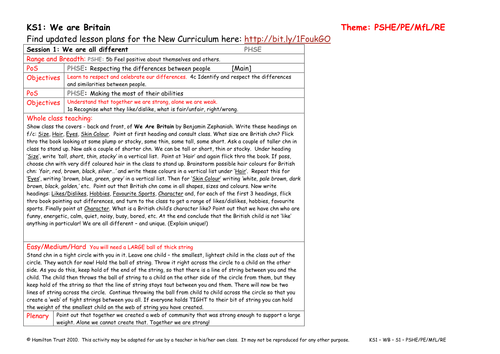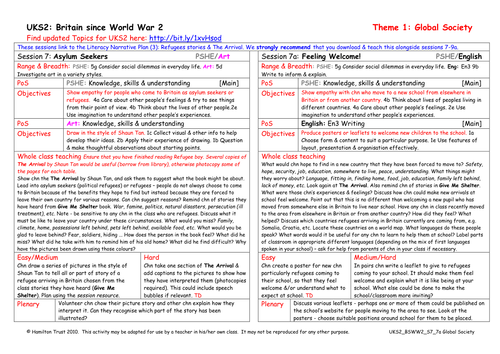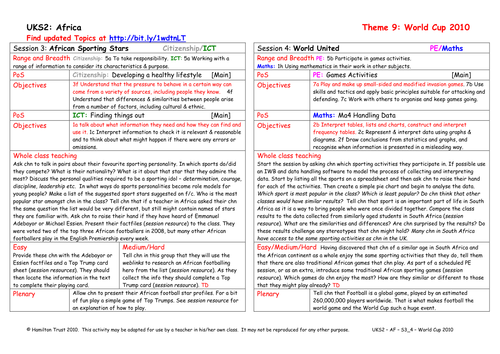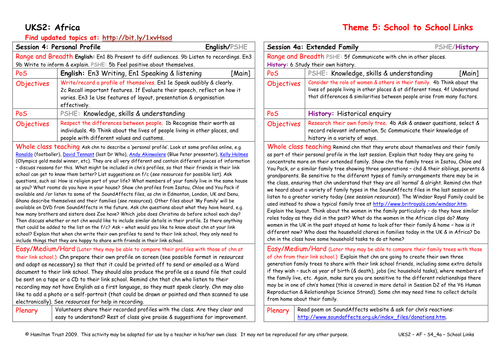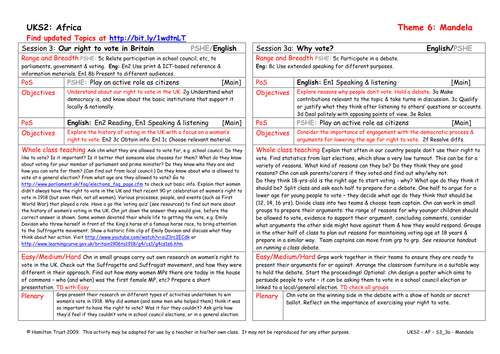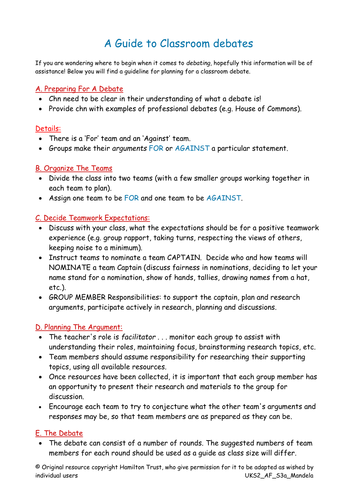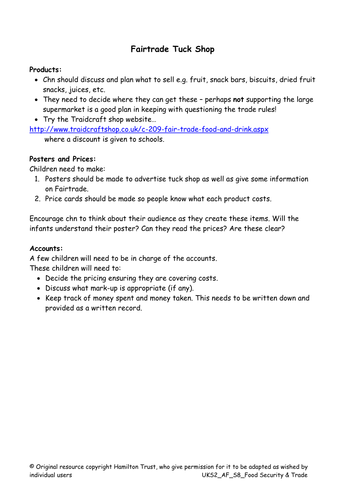
397Uploads
10041k+Views
11644k+Downloads
Citizenship

Life Chances
Use the life chances game to explore how your chances of being healthy and living a long life, depend upon where you live in the world. A focus on Africa.
Suitable for years 5 and 6.

Mandela and Education
This session examines through real stories the varied reasons why 40 million children in Africa don’t attend school. Children play a ranking game to explore obstacles to education.
Suitable for years 5 and 6.

My Life is Different
Look at case studies from different African countries and using the healthy box discuss what things are missing from the healthy box, which explains diffs between the UK & Africa. Children share their case studies and key points. A focus on children’s health.
Suitable for years 5 and 6.

Needs and Wants
Look (again) at the list of UN Children’s Rights. Discuss whether or not children feel they have all their rights and explain how various people and organisations can help achieve them if not. Learn some words and phrases in link school’s language (or Swahili).
Suitable for years 5 and 6.

No Magic Tap
Find out about children’s experience of water all around the world using Oxfam’s Our World Of Water and compare with life in the UK. In a similar style to the book, children create a ‘scrapbook’ page comparing their lives with Khadija or Gamuchu from Africa.
Suitable for years 5 and 6.

Who wants to grow up?
Children continue to explore how our bodies and minds change as we get older and how this might affect us in old age. They go on to explore their feelings and frustrations about wanting to be older.

Learning new ways to say Hello
Learn another circle game and then find out lots of different ways to say hello. Practice saying hello making good eye contact. Work as part of a group to make a ‘hello’ flag. Teach the new hello to the rest of the class.

The Healthy Box
Explore with Children the basis needs to ensure good health, and how they are interconnected using the concept of a ‘healthy box’.
Suitable for years 5 and 6.

We All Say Hello
Play circle games to practice greeting each other confidently. How many ways do children know to say hello in a different language? Learn 3 new ways.

Becoming British
Immigrants who have been in Britain for a few years can ask to become British citizens. Take a look at the criteria they have to meet and some sample questions from the test they have to take. Explain that children around the world share some rights.

Responsibilities
Discuss how the cartoons seen yesterday link to the book We Are All Born Free. Discuss how with rights come responsibilities and what responsibility means. Play the String Game using rights and responsibilities and discover how strong a net can be made.
Suitable for years 5 and 6.

See for yourself!
Brief introduction to the Convention of Children’s Rights is followed by a close look at the book We Are All Born Free. Watch and discuss short cartoons from UNICEF that illustrate different Human Rights. Children give reasons for their choice of best cartoon.
Suitable for years 5 and 6.

We are all different
Children explore the idea stemming from ‘We Are Britain’ that there is no one image or character a of British person. We come in all shapes and sizes, colours and creeds. A splendid activity makes the point that united we make strong communities.

Feeling Welcome
New arrivals in Britain should be made to feel welcome. Think about children moving to a new school from another part of Britain or from another country. Children create posters or write leaflets to welcome newcomers to their school.

African Sporting Stars
Who is your sporting hero? Children consider who their sporting heroes are, what makes them great and introduces the idea of sportspeople as role models. Children then investigate some African football idols for a game of top trumps.

Personal Profile
Use celebrity profiles to decide what children might include in their personal profile to introduce themselves to their link school friends. Listen to Ghanaian children describing themselves and their families. Prepare own profiles on screen or as recordings.

Our right to vote in Britain
Examine voting in the UK, recent elections, and why we vote. Children use a quiz to explore the history of voting in the UK and focus on women’s right to vote, and then do further research. Watch film footage of Emily Davison.
Suitable for years 5 and 6.

Why Vote?
Discuss facts about voting in the UK: not everyone exercises their right to vote. Engage children on the right to vote and its significance in their own country. In two teams for and against, debate the issue of lowering the voting age.
Suitable for years 5 and 6.

Not In My Back Yard
Discuss a proposed plan for creating wind energy. They are given time to research and prepare for a debate ‘Should 7,000 wind turbines be placed in and around the UK?’ In teams they will put forward their views backed up with evidence to support their case.

Fair Trade Tuck Shop
Children consider arguments for and against fairtrade. They plan to set up a fairtrade tuck shop to raise awareness.
Design and make posters to advertise the tuck shop and explain some of the issues surrounding fairtrade. Some children organise the stock and accounts.

